Norman Lear, the prolific and groundbreaking TV producer whose portfolio of comedies focused on social issues and advanced the idea that sitcoms could help drive the conversation about relevant and taboo subjects, has died. He was 101.
Lear died Tuesday at his home in Los Angeles surrounded by family members, his family said. His death was attributed to natural causes.
"Norman lived a life of curiosity, tenacity, and empathy. He deeply loved our country and spent a lifetime helping to preserve its founding ideals of justice and equality for all," his family said in a statement.
"He began his career in the earliest days of live television and discovered a passion for writing about the real lives of Americans, not a glossy ideal. At first, his ideas were met with closed doors and misunderstanding. However, he stuck to his conviction that the “foolishness of the human condition” made great television, and eventually he was heard," the statement said.
A private funeral service will be held for immediate family, the statement said.
Born July 27, 1922, the five-time Emmy Award winner was a TV legend, with his first credit as a writer listed as “All Star Revue” in 1950, according to the entertainment website IMDb. He climbed the ranks, writing sketches for Dean Martin and Jerry Lewis and a slew of variety shows. He also wrote the screenplays for multiple movies in the 1960s, earning an Academy Award nomination for best screenplay in 1968 for “Divorce American Style.”
Lear struck gold in 1971 when he created the CBS sitcom “All in the Family,” based on the British comedy “Till Death Do Us Part.” The show revolved around working-class bigot Archie Bunker, played by Carroll O’Connor, whose old-world views were often challenged in the new era in which he and his wife, Edith, were living.
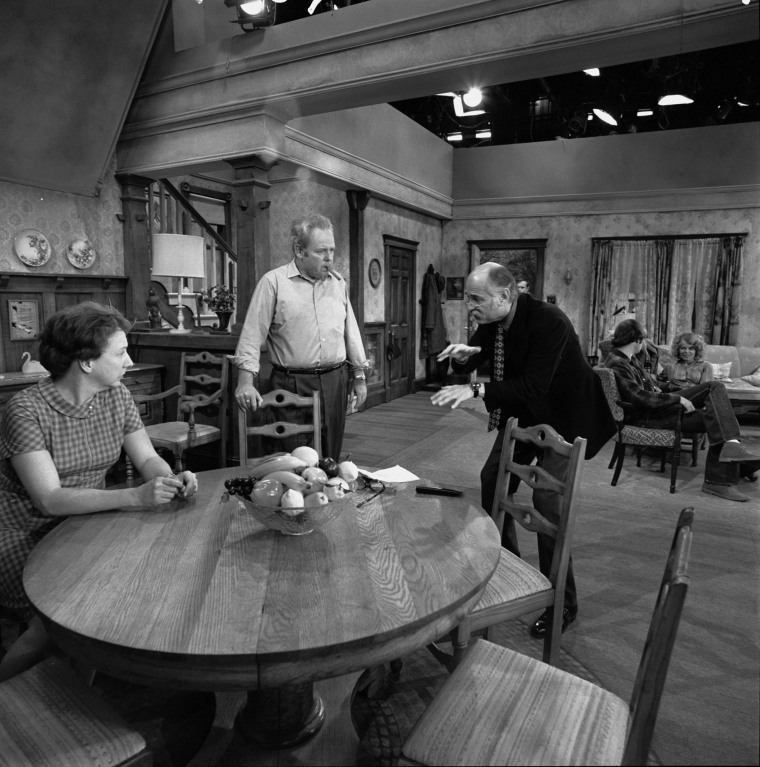
The pioneering series, which Lear revisited in the 2021 book, “All in the Family: The Show That Changed America,” often appears atop lists of greatest shows ever and addressed subjects that were never discussed on prior sitcoms, including racism, the Vietnam War, women’s rights, abortion, religion and homosexuality.
The show initially struggled to find viewers but would go on to become the most-watched show in the country. It won 22 Emmy Awards, including four for outstanding comedy series, before it signed off in 1979, spawning the spinoff “Archie Bunker’s Place,” which ran for another four seasons.
“The kinds of topics Archie Bunker and his family argued about — issues that were dividing Americans from one another, such as racism, feminism, homosexuality, the Vietnam War and Watergate — were certainly being talked about in homes and families. They just weren’t being acknowledged on television,” Lear wrote in a 2021 op-ed in The New York Times.
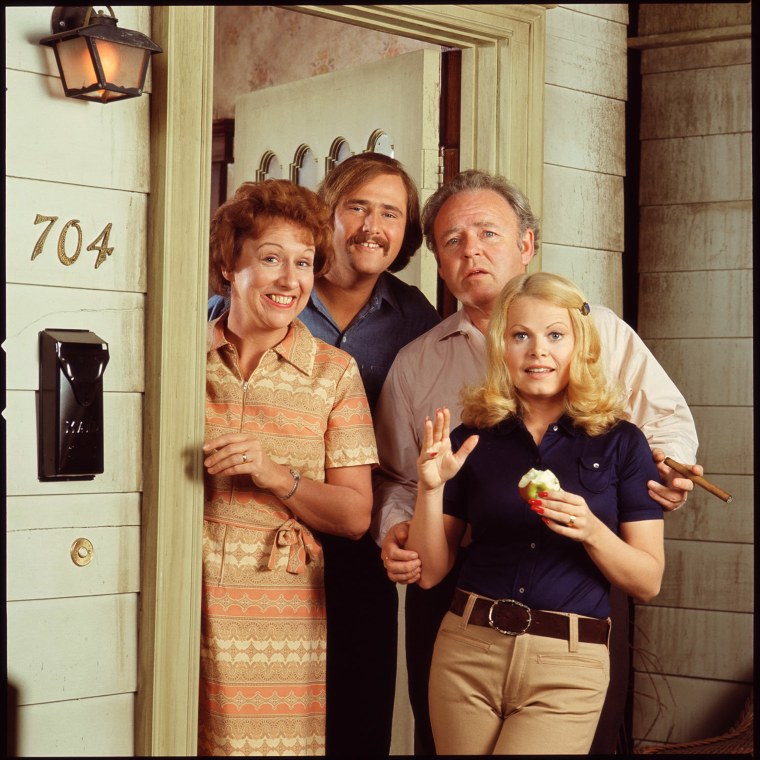
“All in the Family” was a game-changer in the annals of TV, but Lear said he had no clue at the time about its potential impact.
“I didn’t even think I was breaking a mold,” he told NBC News in 2014.
Lear, who would be among the inductees in the first class of the Television Academy Hall of Fame in 1984, would once again hit pay dirt with “Sanford and Son,” a show about an irascible Los Angeles junkyard owner (Redd Foxx) and his son. That series, which premiered in 1972, lasted six seasons and garnered seven Emmy nominations.
Lear continued to create shows that proved to be critical and commercial hits, including “Maude” and “The Jeffersons,” both spinoffs of “All in the Family.” He also developed “One Day at a Time” and “Good Times.”

His shows were known for shining a light on issues of the time and not backing down from discussing them. Indeed, in 1972, before Roe v. Wade was passed, “Maude” aired episodes about the title character (Bea Arthur) having an abortion. That show also tackled alcoholism, suicide and marijuana possession and was nominated for a dozen Emmys during its six-season run. But it is best remembered for its abortion storyline, although it took some time for some people to express their disdain for it.
“Of course the network didn’t wish to do the show. We did the show,” he told NBC News in that 2014 interview. “There was very little fallout. It was months and months later when the show went into reruns that the religious right then had an opportunity, because they knew it was coming.”
Lear said the debate about abortion was everywhere at the time, but not on TV.
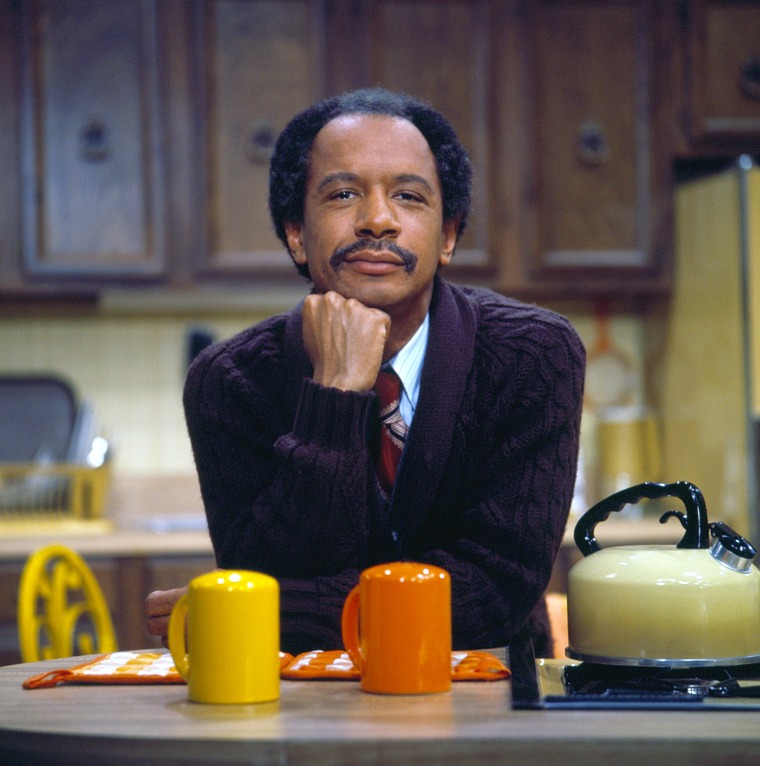
“It was part of the American cultural fabric,” he told NPR in 2014. “It wasn’t talked about a great deal, and it wasn’t written about a great deal. And I didn’t understand why.”
“The Jeffersons,” about hotheaded dry cleaner George Jefferson (Sherman Hemsley), ran for 11 seasons and raised eyebrows for featuring an interracial couple, played by Franklin Cover and Roxie Roker, the Jeffersons’ upstairs neighbors. The series, which received 14 Emmy nominations and two wins, is also remembered for the banter between Hemsley and Marla Gibbs, who played Florence, the tart-tongued maid who was not afraid to put George in his place.
“The Jeffersons” also marked a shift in the depiction of Black people on TV, with a well-to-do Black family representing something new for viewers. With “Good Times” already established, Lear said the signs were pointing to “The Jeffersons.”
“‘Good Times’ had been on for a couple of years, and some in the Black press were writing that it’s a shame that there were no upwardly mobile African American families on television, that James on ‘Good Times’ had to hold down two jobs and sometimes he would have a third,” he told NPR in 2014.
“And that made sense to us, and we were looking at ‘The Jeffersons’ as the possibility of a spinoff also. And so it made sense to think of them as moving on up,” he said, referencing a popular line from the show’s well-known theme song.
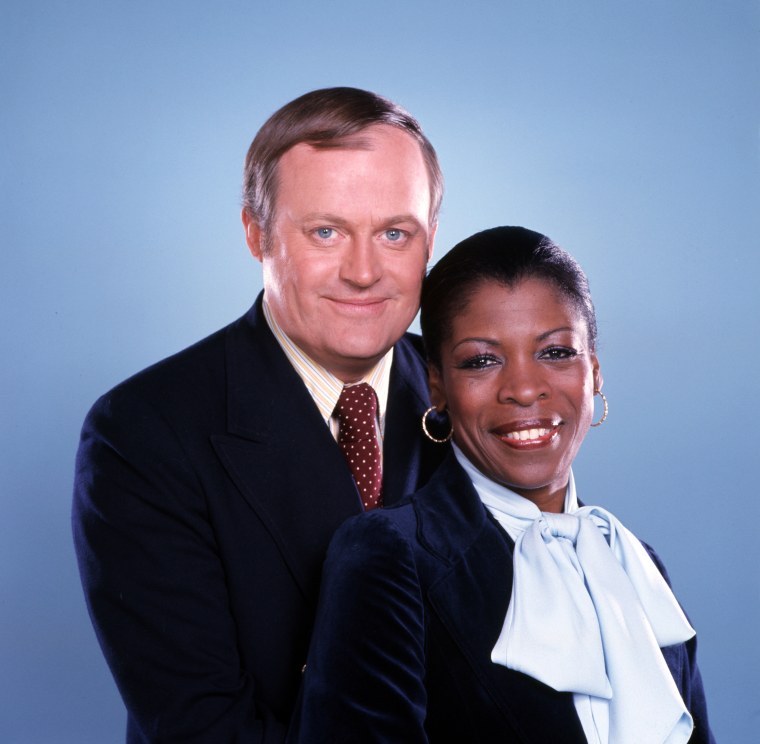
The two-time Emmy-winning “One Day at a Time,” about a divorced Indianapolis woman raising her two teenage daughters, ran for nine seasons and often dealt with topics related to women. The show would be rebooted in 2017, with Lear serving as producer.
“Good Times,” which was a spinoff of “Maude,” revolved around a Black family living in the Chicago projects and often tackled subjects of importance to poor people. In the series, the family was constantly trying to keep its head above water. The show ran for six seasons, and while it focused on being progressive, it was often overshadowed by star Jimmie Walker, whose catchphrase of “Dy-no-mite!” became a national sensation.
Lear’s progressive shows spurred hits but also controversy.
“I remember a piece of mail that called me the No. 1 enemy of the American family in our generation,” he said in 2021 on “Late Night with Seth Meyers,” claiming that the man who wrote the letter was Rev. Jerry Falwell.
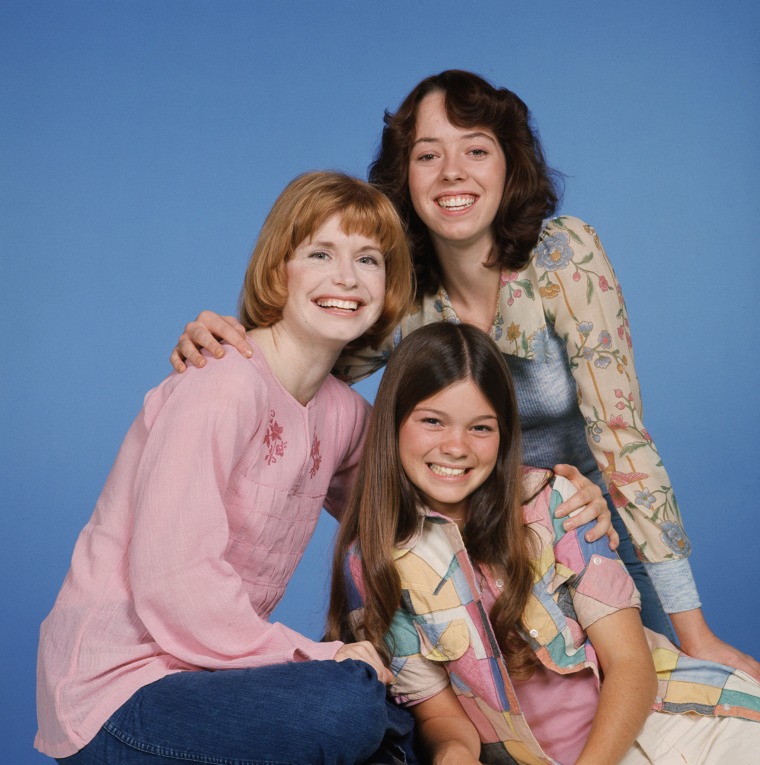
It’s hard to overstate the magic touch Lear had. He also produced other shows like the short-lived soap opera satire “Mary Hartman, Mary Hartman,” “Fernwood 2-Night,” “Silver Spoons,” “The Facts of Life” and “227.” He developed and/or produced “Diff’rent Strokes” and “227,” which reunited him with Gibbs.
Lear’s sitcom presence slowed in the 1990s, but his fingerprints were all over 1970s television, with multiple hit shows on the air at the same time.
“I’ve likened it to a living plant of some kind. If the climate demanded another leg, I had another leg. I’m talking about the working climate. It required me to have more energy in one way or another. And I had it. I learned I had it,” he told Entertainment Weekly in 2021.
Lear also continued to dabble on the big screen, serving as producer on such well-known movies as “The Princess Bride” and “Fried Green Tomatoes.” The small screen, though, is where his most memorable and important work took place, showcasing his flair for making TV a place where viewers could see issues discussed.
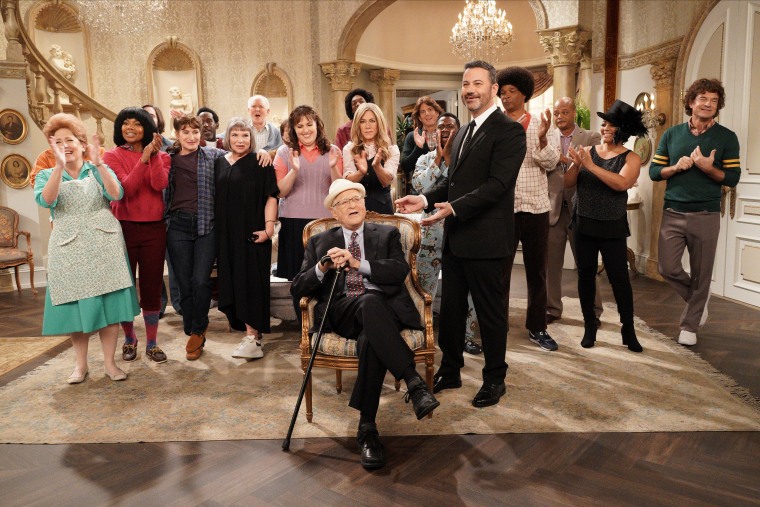
“It isn’t important that the roast is ruined and the boss is coming to dinner,” he told Entertainment Weekly in that 2021 interview. “It’s important that your 14-year-old is behaving in a way that makes you think he or she is terribly unhappy, and you’ve got to get to the bottom of that to help the child through it. Let’s work with real problems; there’s comedy in the foolishness of the human condition.”
Scores of Lear’s shows lived on in syndication for years after they ended. They would also be revisited in “Live in Front of a Studio Audience,” a live re-creation of classic episodes of a variety of his shows.
Episodes aired in May 2019, December 2019 and May 2021, with stars like Jennifer Aniston, Woody Harrelson, Jamie Foxx, Kerry Washington, Jason Bateman and Kevin Hart among the A-list talent starring in episodes of “Diff’rent Strokes,” “The Facts of Life,” “The Jeffersons,” “Good Times” and “All in the Family.” Each 2019 special netted him one Emmy victory apiece.
He worked until his death, working as a producer on the reboot of “Who’s the Boss?”
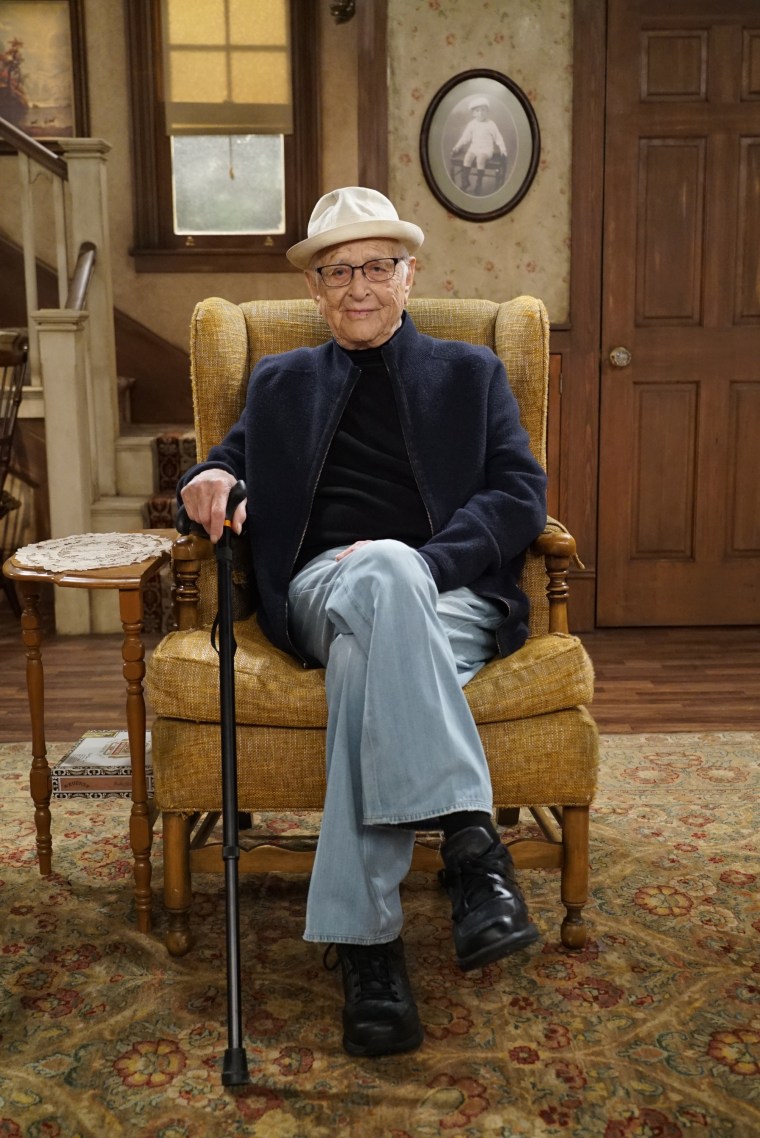
Lear’s socially and politically conscious shows went in lockstep with his offscreen endeavors. A well-known liberal, he was among the founders of People for the American Way, whose website says was created “to fight right-wing extremism and build a democratic society that implements the ideals of freedom, equality, opportunity and justice for all. We encourage civic participation, defend fundamental rights, and fight to dismantle systemic barriers to equitable opportunity.”
He received the National Medal of Arts in 1999 and wrote his own memoir, “Even This I Get to Experience,” in 2014. In 2017, he was chosen as a Kennedy Center Honoree.
In a career that spanned decades, launched some of the most important shows in history and gave big breaks to stars, including the likes of Arthur, Gibbs, Foxx, Hemsley and more, Lear said he had one accomplishment that stands out.
“I couldn’t be prouder of the people who I found along the way,” he told Entertainment Weekly in 2021. “Because life is a collaboration, and television is the collaboration of collaborations.”